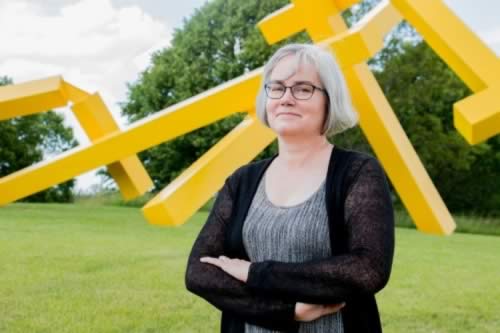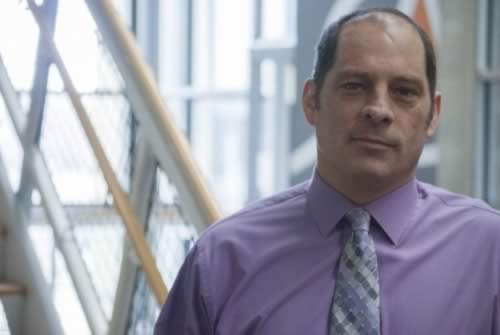
Chicago Heights, IL-(ENEWSPF)- Governor State University’s (GSU) Day of Humanities will explore poetic stanzas portraying the weight of war, the British reasoning for going to war, personal stories of PTSD—all on November 12, the Monday after Veterans Day,
From 11 a.m. to 7:30 p.m., a series of events will commemorate the 100th anniversary of the truce that brought a cessation to hostilities between the Allies of World War I and Germany. Activities remember our shared history and connect war experiences with how we commemorate them in art, literature, and film.
Part of the “War Memory and Commemoration in the Humanities” project, the day is made possible by a prestigious $100,000 National Endowment for the Humanities’ (NEH) grant; $1.2 million is awarded annually.
The project was co-architected by GSU Professors Rosemary Johnsen and Andrae Marak to help the community think more deeply about issues raised by war and military service, and focuses on experiential learning.
Johnsen specializes in British literature from WW I to after WW II, and Marak is a borderlands scholar whose research routinely infuses humanities’ sources. This is the second NEH grant for the pair of scholars. Last year’s project was entitled “War, Trauma, and the Humanities.”

The events on November 12 will bring together the transfer of knowledge from historical scholarly text and present day experts, to five novice student facilitators trained using humanities sources to co-facilitate an English special topics course (War Memory and Commemoration).
Each week, the group meets for a 7:30 p.m. course to reflect on experiences of soldiers before them, embodied in literature, poetry, visual arts and film. Readings and discussions focus on four wars, with the first half of the course covering World War I and the second half focusing on Vietnam, women in combat, and the Iraq/Afghanistan conflict. For some, the experience has been transformative, impacting them in unexpected ways.
In a discussion about war and their remembrance, GSU student Eden Puente, who served in the U.S. Army from 2003 Operation Enduring Freedom, said “I got out in 2007 and for nine years of post-military life, I wanted nothing to do with veteran organizations,” perceiving them as “watering holes.” But now he sees things differently. The last couple of years he felt a need to connect with other veterans who shared his experience, and this project’s focus on how we memorialize war drew him in.
“It’s dear to me because my uncle was a Vietnam vet, and when he got home there was no ceremony, no nothing. When I got home, I think it was more of a celebratory thing. So, it was kind of interesting to me to see the different wars and how they were memorialized.” Puente is now studying social media marketing at GSU, so he will be able to use his new learnings and help veterans connect.
He is also one of the panel speakers on November 12.
Connection is the one word that gets to the heart of this program. In “The Things They Carried,” veteran and author Tim O’Brien writes of the Vietnam experience, “Some things the men carry are universal, like a compress in case of fatal injuries… All men carry the figurative weight of memory and the literal weight of one another.”
This connection to fellow soldiers is one of the positive outcomes project participants experienced. The training has inspired the student veterans to reach out to other soldiers. For Puente, being part a small group discussion facilitator unit inspired him to form new relationships on campus.
“My first two semesters here, I isolated myself. Now I’m meeting students and making these connections with Governors State, and I think it makes for a better community inside the university.”
Student veteran Kristi Schaefer agrees. She served briefly in the Illinois National Guard before going active with the U.S. Army from 2000 to 2003 in Fort Campbell, Kentucky. She didn’t see combat, but she witnessed trauma from other soldiers so once she was discharged, Schaefer wanted to leave the bad memories behind. All that changed when she signed up to be a small group discussion facilitator at GSU, where she met Puente, who had served at the same post unbeknownst to her. “This has been good—just to be around other veterans and talk and share stories and to have that bond,’’ said Schaefer, a sociology student
It is especially gratifying to Dr. Johnsen to see returning students from last year’s “War, Trauma, and the Humanities” course. “It makes for rich discussions in class, seeing last year’s project participants engage with the new material, while transferring their previous knowledge to fellow classmates. It shows the student-as-facilitator model is working,” she said.
GSU’s Veterans Resource Center and Testing Center serves as a dedicated resource for veterans’ education year-round.
About the “War Memory and Commemoration in the Humanities” project
This project is made possible in part by a major grant from the National Endowment for the Humanities. During the spring of 2019, multiple public forums will be offered to engage the community at large at venues including a public library, Prairie State College, Purdue University Northwest, and the Chicago Heights, IL VFW post. Visit our website for more details on planned events.








